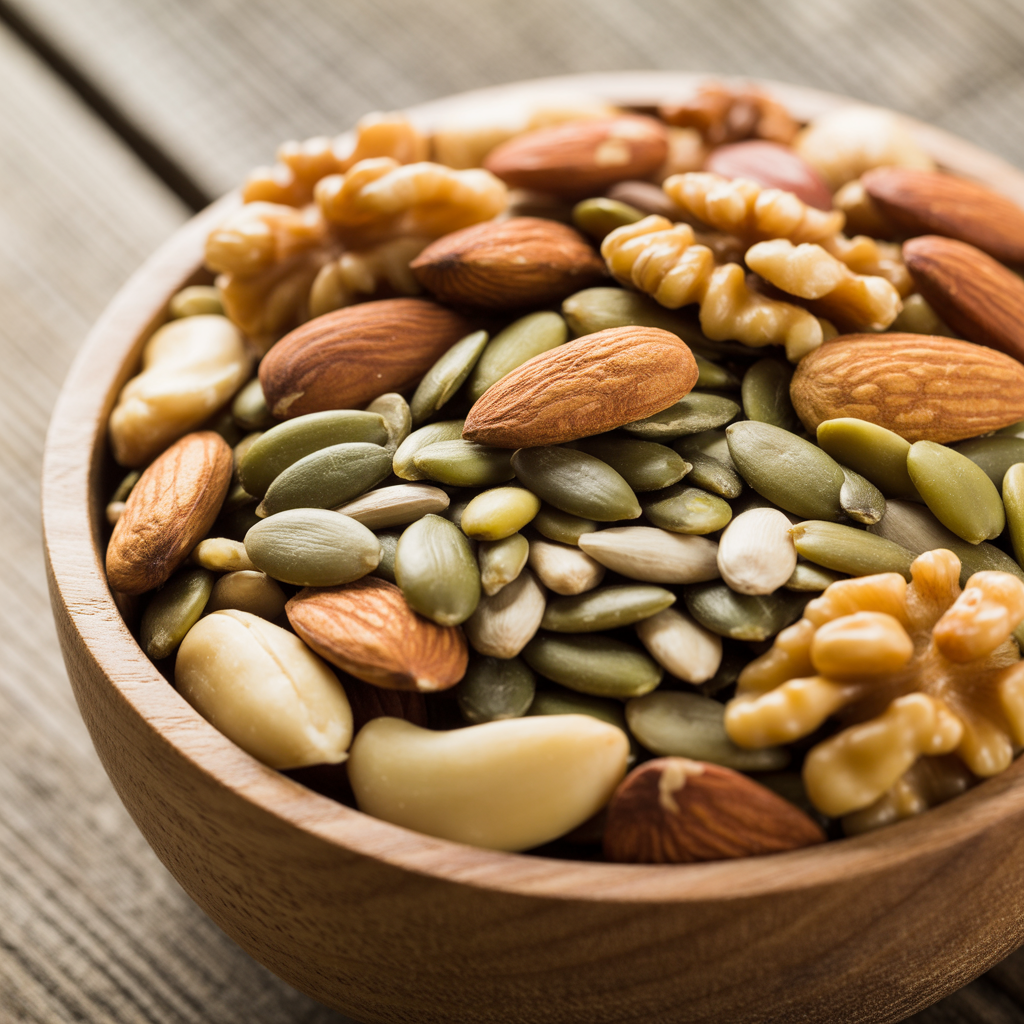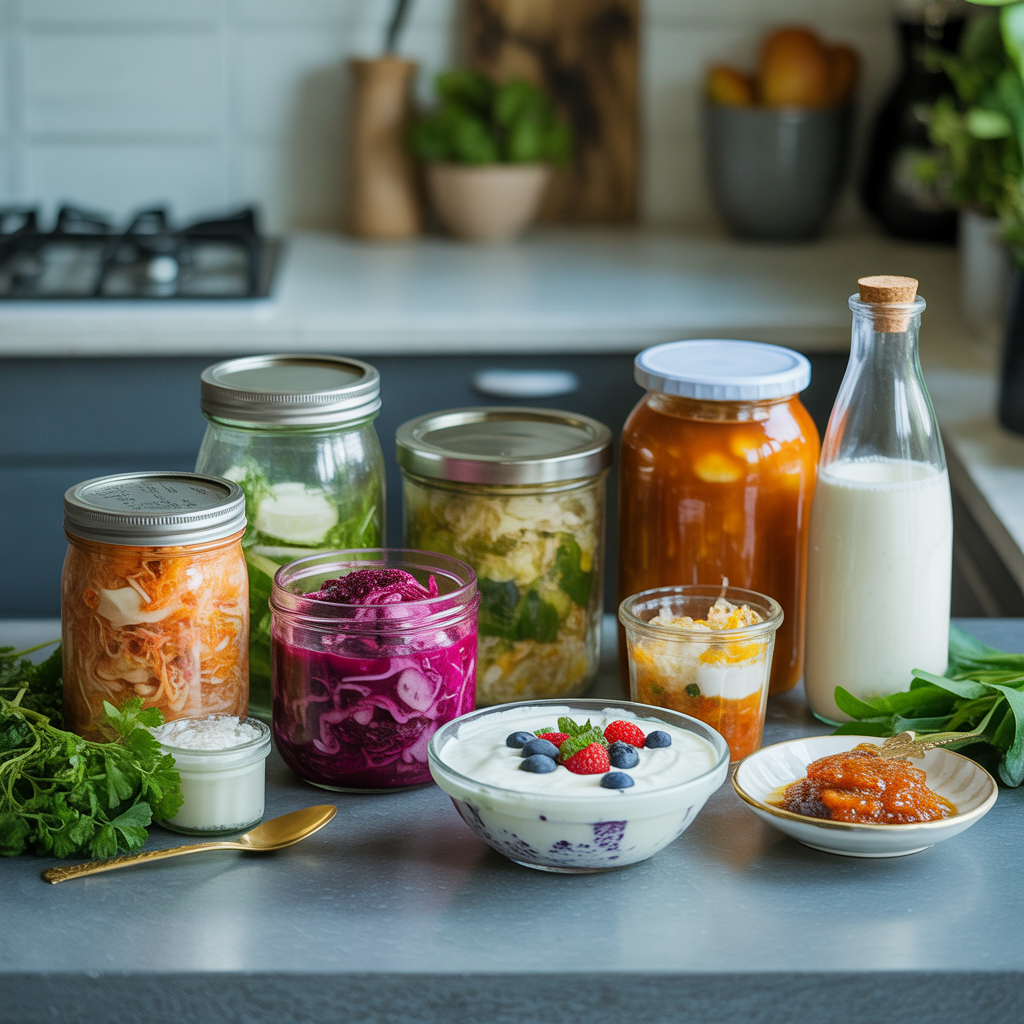A robust immune system serves as your body’s natural defense mechanism, working tirelessly to protect you from harmful pathogens and maintain overall health. While many factors influence immune function, nutrition plays a fundamental role in supporting your body’s ability to defend itself. Research suggests that certain foods, rich in specific vitamins, minerals, and bioactive compounds, may help support optimal immune system function when consumed as part of a balanced diet.
Understanding which foods contain immune-supporting nutrients can help you make informed dietary choices that contribute to your overall wellness. From vitamin C-packed citrus fruits to probiotic-rich fermented foods, nature provides an abundance of options that may help nourish your immune system. This information is for educational purposes only and is not intended to replace professional medical advice. Always consult with a qualified healthcare provider for personalized health guidance.
How Nutrition Supports Immune Function
Your immune system is a complex network of cells, tissues, and organs that work together to defend your body against potentially harmful substances. This sophisticated system requires various nutrients to function optimally, much like a well-oiled machine needs quality fuel to operate efficiently.
Several key nutrients play crucial roles in supporting immune health. Vitamin C acts as a powerful antioxidant and supports the production and function of white blood cells. Vitamin D helps regulate immune responses and supports the activity of immune cells. Vitamin A maintains the integrity of mucous membranes, which serve as barriers against pathogens. Meanwhile, minerals like zinc support immune cell development and communication, while selenium acts as an antioxidant that may help protect cells from damage.

Antioxidants and phytonutrients found in colorful fruits and vegetables help combat oxidative stress, which can weaken immune function over time. These naturally occurring compounds work synergistically to support your body’s defense mechanisms in ways that isolated supplements may not replicate as effectively.
While supplements have their place, research consistently shows that obtaining nutrients from whole foods provides additional benefits. Whole foods contain complex combinations of vitamins, minerals, fiber, and other bioactive compounds that work together to support overall health, including immune function.
Top Immune-Supporting Food Categories
Citrus Fruits and Vitamin C-Rich Foods
Citrus fruits like oranges, grapefruits, lemons, and limes are well-known sources of vitamin C, a nutrient that supports various immune system functions. Vitamin C helps stimulate the production of white blood cells, which are essential for fighting infections. It also supports the function of neutrophils, lymphocytes, and phagocytes—key players in your immune response.
Beyond traditional citrus fruits, other excellent sources of vitamin C include bell peppers, strawberries, kiwi fruit, broccoli, and Brussels sprouts. Red bell peppers, in particular, contain nearly twice the vitamin C of citrus fruits. These foods can be easily incorporated into your daily diet through fresh consumption, smoothies, or light cooking methods that preserve their nutrient content.
Colorful Berries and Antioxidant Powerhouses
Berries such as blueberries, blackberries, raspberries, and elderberries are packed with antioxidants called anthocyanins, which give them their vibrant colors. These compounds may help protect immune cells from damage caused by free radicals and support overall immune function.
Elderberries have been traditionally used for immune support and contain high levels of vitamins A and C, along with flavonoids. Blueberries are rich in vitamin C and contain compounds that may help support the body’s natural defense mechanisms. These versatile fruits can be enjoyed fresh, frozen, or dried, making them easy to include in breakfast bowls, smoothies, or healthy snacks.
Leafy Greens and Cruciferous Vegetables
Dark leafy greens like spinach, kale, and Swiss chard are nutritional powerhouses containing vitamins A, C, and E, along with folate and iron. These nutrients support various aspects of immune function, from maintaining healthy mucous membranes to supporting the production of new immune cells.
Cruciferous vegetables such as broccoli, Brussels sprouts, and cauliflower contain sulfur compounds that may support the body’s detoxification processes and provide additional immune-supporting benefits. These vegetables are also rich in fiber, which supports gut health—an important component of overall immune function.

Garlic, Onions, and the Allium Family
Garlic and onions contain sulfur compounds, particularly allicin in garlic, which have been studied for their potential immune-supporting properties. These compounds are released when garlic is crushed or chopped and may help support the body’s natural defense mechanisms.
Other members of the allium family, including shallots, leeks, and chives, also contain beneficial compounds. These flavorful additions to meals not only enhance taste but may also contribute to overall immune wellness when consumed regularly as part of a varied diet.
Yogurt and Fermented Foods
Your gut houses approximately 70% of your immune system, making gut health crucial for overall immune function. Fermented foods like yogurt, kefir, sauerkraut, kimchi, and miso contain beneficial bacteria called probiotics that may help support a healthy gut microbiome.
When choosing yogurt, look for varieties that contain live and active cultures and minimal added sugars. Greek yogurt provides the additional benefit of higher protein content, which supports the production of antibodies and other immune system components.
Nuts, Seeds, and Healthy Fats
Nuts and seeds are excellent sources of vitamin E, a fat-soluble antioxidant that helps protect cell membranes from damage. Almonds, sunflower seeds, and hazelnuts are particularly rich in vitamin E. Walnuts provide omega-3 fatty acids, which may help support healthy inflammatory responses.
These foods also provide healthy fats that are essential for the absorption of fat-soluble vitamins and the maintenance of cell membrane integrity. A small handful of mixed nuts or seeds makes an excellent snack that supports both immune health and overall nutrition.
Lean Proteins and Zinc Sources
Adequate protein intake is essential for the production of antibodies and other immune system proteins. Lean sources like poultry, fish, legumes, and eggs provide high-quality protein along with other immune-supporting nutrients.
Zinc is particularly important for immune function, and good sources include lean meats, poultry, seafood, legumes, nuts, and seeds. Pumpkin seeds are an especially rich plant-based source of zinc. This mineral supports the development and function of immune cells and helps maintain the integrity of skin and mucous membranes.
Practical Tips for Implementation
Incorporating immune-supporting foods into your diet doesn’t have to be complicated. The “rainbow plate” approach—aiming to include foods of different colors at each meal—naturally ensures a variety of nutrients and antioxidants. Different colored fruits and vegetables provide different phytonutrients, so variety is key.

Seasonal eating can also be beneficial, as it provides natural variety throughout the year and ensures you’re getting fresh, nutrient-dense foods. Spring greens, summer berries, fall squashes, and winter citrus fruits each offer unique nutritional profiles that support immune health in different ways.
When preparing immune-supporting foods, gentle cooking methods like steaming, light sautéing, or eating foods raw when appropriate can help preserve heat-sensitive nutrients like vitamin C. However, some nutrients, like lycopene in tomatoes, become more bioavailable when cooked, so a combination of raw and cooked foods is often ideal.
Don’t forget about hydration—adequate water intake supports all bodily functions, including immune system processes. Herbal teas like green tea, which contains catechins with antioxidant properties, can contribute to both hydration and nutrient intake.
Lifestyle Factors That Work Together
While nutrition is crucial for immune health, it works best in combination with other healthy lifestyle practices. Quality sleep is essential for immune function, as much of the body’s immune system regeneration and memory formation occurs during rest. Most adults benefit from 7-9 hours of quality sleep per night.
Regular physical activity supports circulation and may help immune cells move through the body more effectively. Moderate exercise appears to boost immune function, while excessive intense exercise may temporarily suppress it, highlighting the importance of balance.
Chronic stress can negatively impact immune function, so stress management techniques like meditation, deep breathing, or engaging in enjoyable activities can complement a healthy diet in supporting overall immune wellness.
What to Remember
When it comes to supporting immune health through nutrition, consistency matters more than perfection. Small, sustainable changes to include more nutrient-dense foods in your daily routine can have cumulative benefits over time. You don’t need to overhaul your entire diet overnight—gradual improvements are often more sustainable and effective.
Individual nutritional needs vary based on age, health status, activity level, and other factors. What works well for one person may need to be adjusted for another. This is why focusing on overall dietary patterns rather than individual “superfoods” is often most beneficial.
A whole-diet approach that emphasizes variety, balance, and moderation typically provides better results than focusing on single nutrients or foods. The synergistic effects of different nutrients working together in whole foods often provide greater benefits than any single component alone.
For personalized nutrition advice or if you have specific health concerns, it’s always best to consult with a healthcare provider or registered dietitian who can provide guidance tailored to your individual needs and circumstances.
Conclusion
Supporting your immune system through nutrition is one of the most accessible and enjoyable ways to invest in your overall health. From vitamin C-rich citrus fruits and antioxidant-packed berries to probiotic-containing fermented foods and zinc-rich proteins, nature provides an abundance of options to nourish your body’s defense systems.
Remember that immune health is best supported through consistent, long-term healthy eating patterns rather than quick fixes or extreme dietary changes. By gradually incorporating more of these immune-supporting foods into your regular meals and snacks, you’re taking a proactive step toward better overall wellness.
The information provided here is for educational purposes and should not replace professional medical advice. Your immune system is complex and individual, so working with healthcare professionals ensures you receive the most appropriate guidance for your specific situation and health goals.